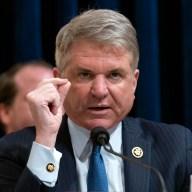By Robin Emmott
BRUSSELS (Reuters) – China is set to make good on a promise to invest two billion euros in the European Union’s new infrastructure fund at a summit in Beijing on Wednesday, officials say, a gesture aimed partly at easing tensions over other issues. From massive Chinese steel exports to Beijing’s militarization of islands in the South China Sea, the EU is nervous about the activities of its second-largest trading partner.
But Brussels can claim one small victory in persuading China to sink money into an EU-controlled fund over which Beijing has no direct say.
“China has a lot of liquidity and needs to invest it somewhere,” one senior EU official said, asking not to be named. “We’ve made it quite clear this is a European fund over which China has no sway, but Chinese banks can expect to see returns on their loans.” At the EU’s annual summit with China, China’s premier Li Keqiang will make an initial investment of about two billion euros ($2.21 billion) in a financing vehicle linked to the European Union’s 315-billion-euro European Fund for Strategic Investments, officials familiar with the talks told Reuters. The deal that was first discussed a year ago should be a success for European Commission President Jean-Claude Juncker, who will travel to Beijing with European Council President Donald Tusk. Juncker faced scepticism in 2014 when he proposed the fund because EU governments are putting in only seed money. While China already invests billions of euros in Europe, Beijing hopes that by putting money into a European Union-controlled infrastructure fund, it can avoid past pitfalls of operating alone in Europe and still generate strong returns as China seeks to reduce its reliance on massive exports. The investment will also mark a deepening of Sino-EU economic ties, after European governments signed up to the Chinese-led Asian Infrastructure Investment Bank (AIIB), despite Washington’s displeasure, part of China’s so-called chequebook diplomacy to win greater influence. EU officials hope the sum will quickly grow toward the 10 billion-euro mark, a prospect that relies on European support for China’s westward infrastructure drive — the “One Belt, One Road” initiative that involves building major energy and communications links across Central, West and South Asia to as far as Greece. Two other EU officials said they expect the investment pledge to go ahead because Europe’s fund is backed by the EU budget and the European Investment Bank (EIB). The fund has promised to pick up the bill of any projects that go bust in the early stages, acting as a so-called first-loss guarantor. With that backing, the bloc is relying mainly on private investors and development banks to fund selected projects that might otherwise be considered too risky for funding by commercial lenders.
“DATING AGENCY”
China will have no say over how the money is invested, a difficult issue that took months of negotiations to resolve following China’s decision to invest at a summit in July 2015. Chinese officials told Reuters they initially offered money on the basis that it would be spent on technology infrastructure projects involving Chinese companies in Europe such as telecoms equipment company Huawei <002502.SZ>. However, Brussels resisted because its infrastructure fund is fully controlled by the European Commission and the EIB and is obliged to choose projects on merit.
In November 2014, an EU task force came up with a preliminary list of some 2,000 projects worth 1.3 trillion euros, although many did not meet funding criteria.
Europe is struggling with a 15 percent fall in infrastructure spending since 2007, before the global financial crisis left governments with scant funds and under greater pressure to comply with rules to keep their budgets in check. Projects from airports to broadband networks have difficulty obtaining funding, putting Europe’s investment needs at much more than the money available in Europe’s infrastructure fund.
EU officials hope China’s interest will be followed by other emerging market countries eager to invest in Europe. EU officials refer to the fund as a “dating agency” that matches up investors with projects while also offering good returns. (Reporting by Robin Emmott; Editing by Helen Popper)














